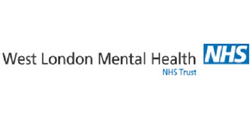Copy of `NHS - Mental health glossary`
The wordlist doesn't exist anymore, or, the website doesn't exist anymore. On this page you can find a copy of the original information. The information may have been taken offline because it is outdated.
|
|
|
NHS - Mental health glossary
Category: Health and Medicine
Date & country: 27/07/2014, UK
Words: 40
|
Bipolar disorderA mood disorder consisting of very high and then very low changes in personality and behaviour. Previously known as 'manic depression'.
Caldicott GuardianThe person with responsibility for the policies that safeguard the confidentiality of patient information.
Care planA signed written agreement setting out how care will be provided. Your care plan may be written in a letter or using a special form.
Care programme approach (CPA)A way of assessing the health and social (non clinical) care needs of someone with mental health problems to provide a package of care that ensures they get the full help and support they need.
CarerA friend or relative who looks after an ill, disabled or older person on an informal, voluntary and long-term basis.
CBT - Cognitive behaviour therapyA talking therapy that focuses on
Chronic conditionA condition that develops slowly or lasts a long time.
ClientSomeone who uses health services. Some people use the terms patient or service user instead.
Clinical auditRegular measurement and evaluation by health professionals of the clinical standards they are achieving.
Clinical governanceA system of steps and procedures through which NHS organisations are accountable for improving quality and safeguarding high standards.
CommissionerAn organisation or body that purchases specialist health services for a particular community or geographical area.
CommissioningThe purchase of specialist health services for a particular community or geographical area.
Community healthcare servicesNHS services provided outside of hospital, for example in a community clinic or outreach centre.
CPN - Community psychiatric nurseA specialist nurse who works within a local community to assess needs as well as plan and evaluate programmes of care.
CrisisA mental health crisis is a sudden and intense period of severe mental distress.
Crisis resolution teamServices to manage/limit the crises suffered by mental health service users and support people to remain at home.
Day careCommunal care which is usally provided away from a service user's place of residence with carers present.
Drama therapyA form of treatment that encourages spontaneity and creativity, giving people the opportunity to look back and help resolve problems.
Dual diagnosisWhen two or more problems/disorders affect a person at the same time.
Electro-convulsive therapy (ECT)ECT involves sending an electric current through the brain to trigger a seizure, or fit, with the aim, in most cases, of relieving severe depression.
Formal patientA formal patient is a person who has been detained in hospital under a section of the Mental Health Act (1983).
GPA GP or General Practitioner is also known as a family doctor. They provide a wide range of family health services.
Health care assistant (HCA)Someone employed to support other health care professions.
Mental Health Act (1983)The Mental Health Act is a law that allows for the compulsory detention of people in hospital for assessment and treatment of a mental illness.
Mental health trustA mental health trust provides treatment, care and advice for patients who are mentally ill. The services may be provided from a hospital or in the community.
Multi-disciplinary teamA team made up of both health and social care workers.
Non-executive director (NED)A member of the trust
Organic illnessIllness affecting memory and other functions that is often associated with old age. Dementia, including Alzheimer
PharmacistSpecialist health professionals who make, dispense and sell medicines.
Primary careHealth services, which are first point of contact for patients, e.g. GP surgeries, pharmacists, local dentists, opticians etc.
PsychiatristA medical doctor specialising in the prevention, assessment, diagnosis, treatment, and rehabilitation of mental illness.
PsychologistA mental health professional who specialises in talking therapies such as cognitive behavioural therapy.
RehabilitationA programme of therapy and re-enablement designed to restore independence and confidence and reduce disability.
Respite careAn opportunity for a carer to have a break.
SchizophreniaSchizophrenia is used to describe a mental state in which a person can't distinguish their own thoughts, ideas and imaginings from reality.
Secondary careSpecialised treatment usually provided by a hospital.
Service userThis is someone who uses health services. Some people use the terms patient or client instead.
Social inclusionEnsuring that vulnerable or disadvantaged groups are able to access all of the activities and benefits available to anyone living in the community.
StigmaSociety
Strategic health authority (SHA)Public body that manages the performance of the NHS across a region (e.g. London).

